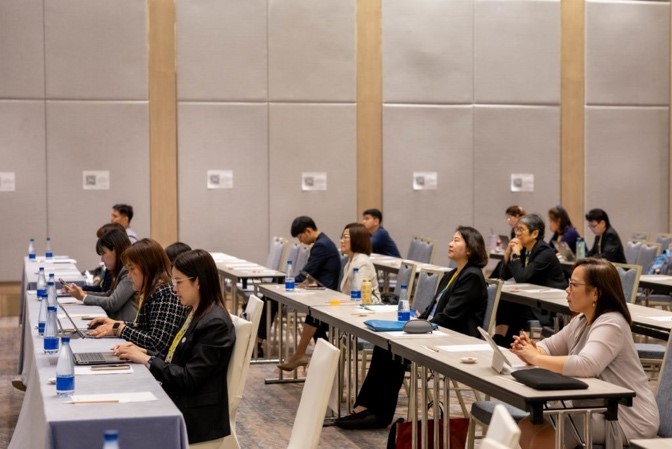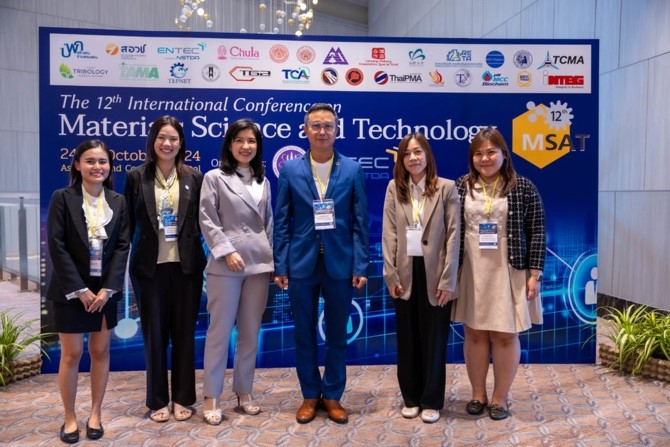On 25 October 2024, Dr. Surachai Sathitkunarat, Senior Strategist and Acting Vice President of NXPO, delivered a talk in the “Thailand’s Green Talent Forum”, at the 12th International Conference on Materials Science and Technology (MSAT-12). The forum gathered representatives from government, academia and industry to discuss green skill development as a driver of sustainable development. Dr. Surachai was joined by distinguished speakers Assoc. Prof. Dr. Toemsak Srikhirin, Executive Director of the National Metal and Materials Technology Center (MTEC), and Dr. Pavadee Aungkavattana, Deputy Director of the Program Management Unit for Human Resources & Institutional Development, Research and Innovation (PMU-B).
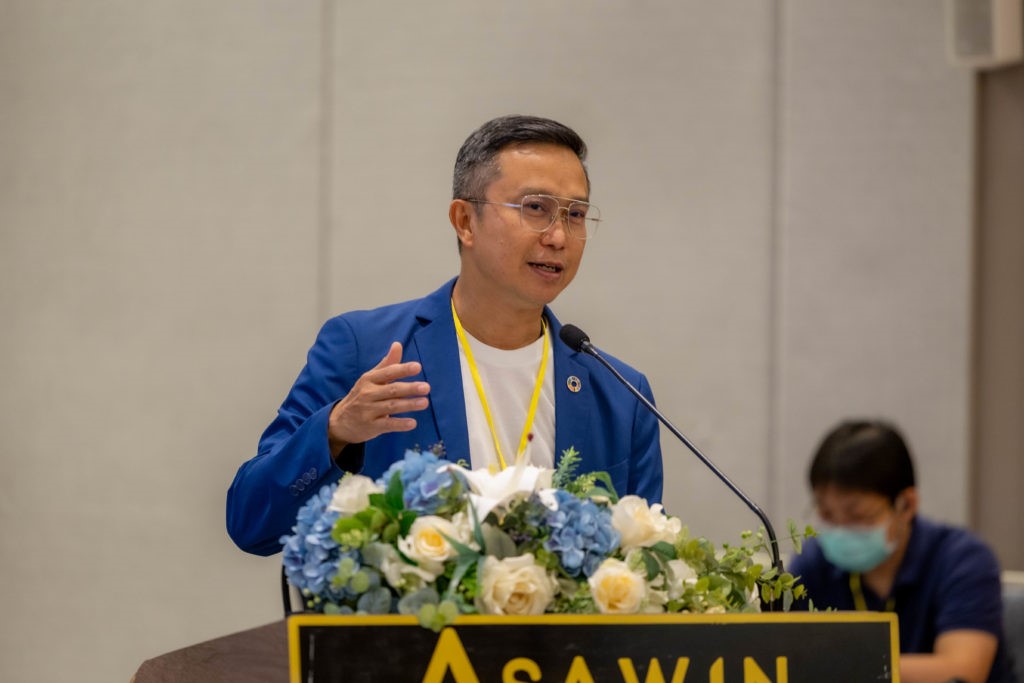
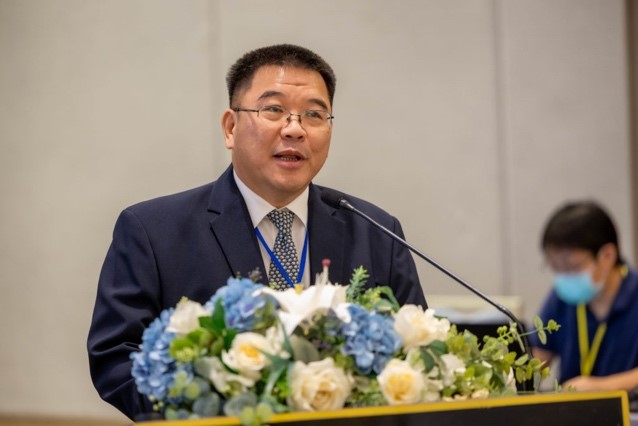
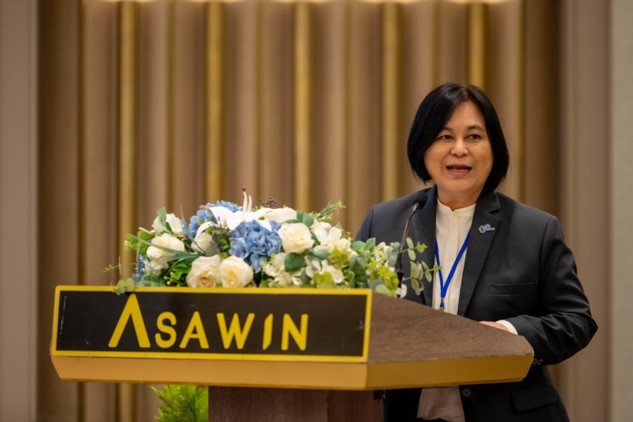
Dr. Surachai underscored increasing global attention on green innovation as a key to combat climate change and foster sustainable development. “Green Skills” – knowledge and abilities to develop and apply climate technology – will therefore be essential to drive a sustainable and resource-efficient society.
“Green Talent is crucial for the future, fostering innovations, driving economic transformation, and promoting sustainable development across all sectors. Furthermore, this talent will support system reform to address environmental crises both domestically and globally, making green skill development a collaborative mission for a balanced and sustainable society,” Dr. Surachai said.
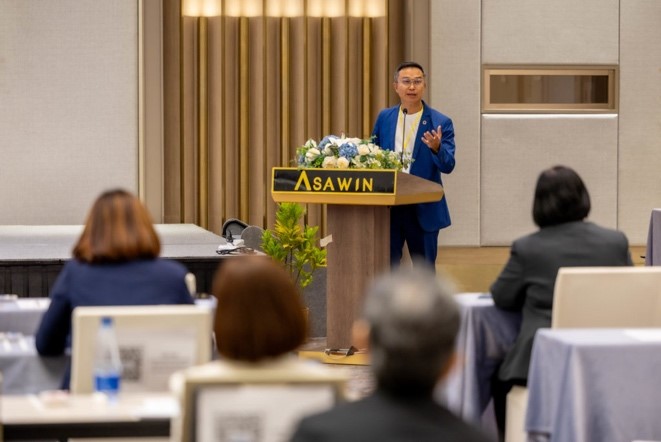
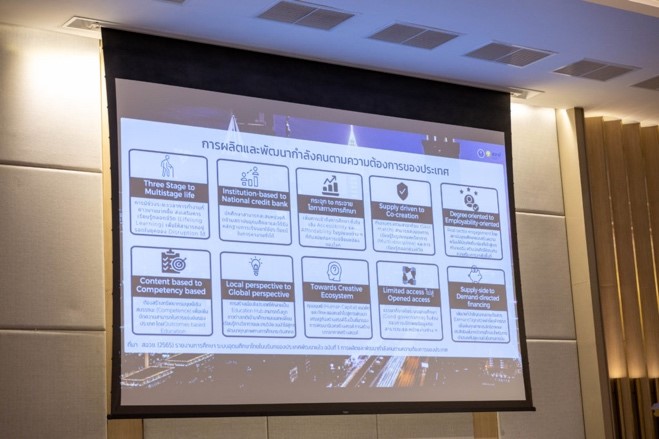
Dr. Surachai also highlighted NXPO’s green skill initiatives, including a joint study with MTEC on skill mapping. The resulting projects will support the “Net Zero Campus” – a collaborative effort among NXPO, the Council of University Presidents of Thailand (CUPT), Thailand Science Research and Innovation (TSRI) and the Department of Climate Change and Environment (DCCE).
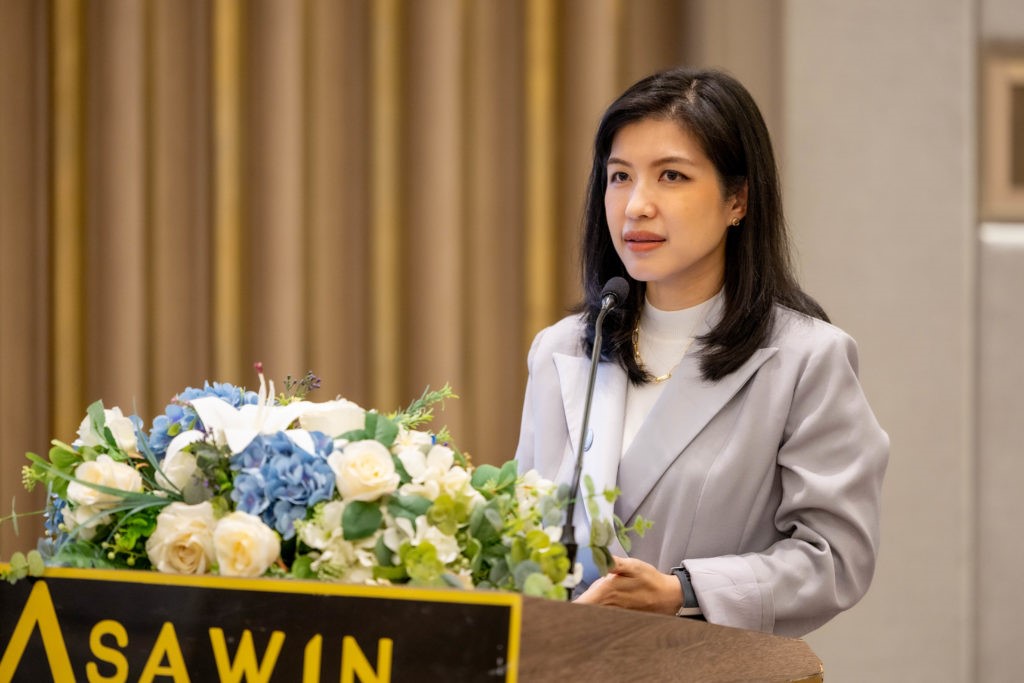
Dr. Saravanee Singtong, Director of Sustainability Policy Division at NXPO, discussed future skill sets needed to address global warming and highlighted the progress of the Net Zero Campus initiative. She emphasized the need for green technology in building a high-value, competitive green economy. She noted that by 2050, the green market value is projected to reach USD 10.3 trillion, or 5% of global GDP. In this scenario, sustainable businesses will take over traditional ones, with companies that do not adapt facing challenges like regulatory constraints, shifting consumer demands, and difficulties in financing.
Dr. Saravanee also noted that the shift in the Talent Champion has widened the gap between highly skilled and general workers, with high earners predominantly residing in developed countries. Bridging this gap requires human capital development, focusing on nurturing the younger generation to become Talent Champions. “Thailand ranked 79th on the Global Talent Competitiveness Index, lagging behind regional peers like Malaysia, Vietnam, China, Japan, Korea, and Singapore. If this trend continues, industries may relocate to more talent-competitive countries. This calls for cross-sector collaboration to bridge this talent gap, especially in green skills, to strengthen a green workforce for Thailand’s economic and environmental benefit,” Dr. Saravanee concluded.
